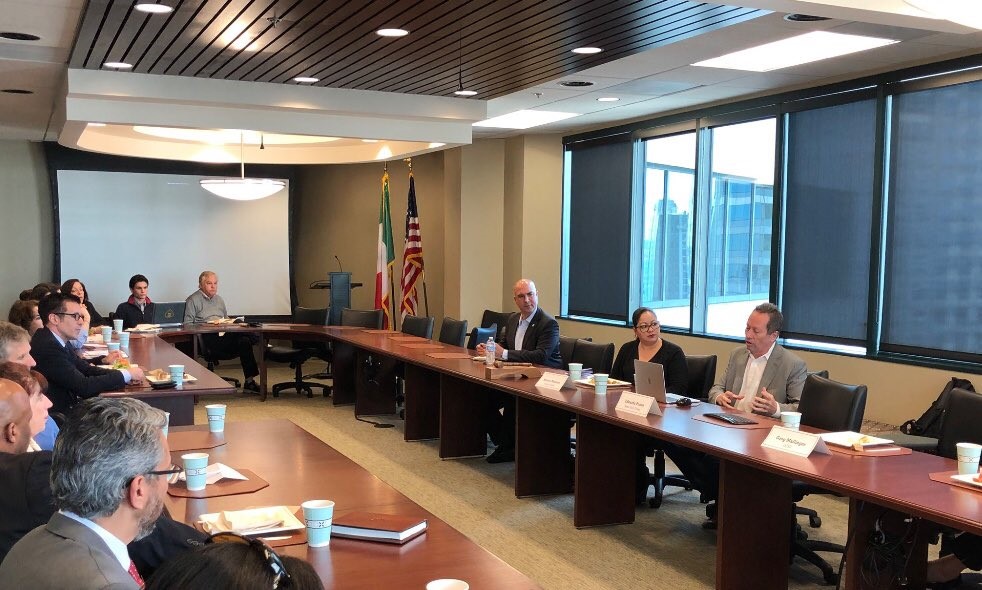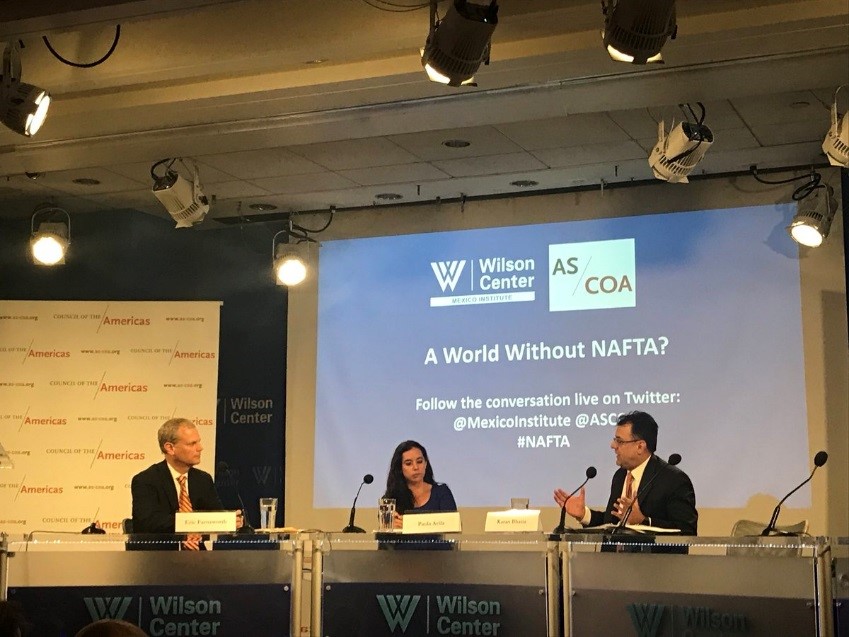February 16, 2018
On January 25th two simultaneous NAFTA talks were held in San Diego, at the Chamber office, and in Washington, D.C.
The Chamber hosted a Good Government Speaker Series roundtable discussion on the economic impact of NAFTA with The New York Times journalist Eduardo Porter. Porter shared statistics and historic data which provided an overview of NAFTA since Mexico, Canada, and the U.S. first sat at a negotiating table in 1992. He addressed how current criticism links NAFTA to factors it has no impact on such as the loss of manufacturing jobs in the U.S., which were a consequence of automatization and China’s competitiveness. Benefits to certain industries were also explained. Porter shared “it is thanks to NAFTA that investments in auto production have grown faster in the U.S.” and “the automotive supply chain is now strongly consolidated”. The discussion highlighted how the future of Mexico and the U.S. are really tied to each other including what the implications would be across different industries if the agreement were to end. Despite current free trade agreements with other countries, trade with the rest of the world is minor in comparison to trade between NAFTA partners.
The same day in Washington, the Wilson Center partnered with the Council of the Americas to co-host a discussion with city Mayors, former Ambassadors, and business leaders from Mexico, the U.S., and Canada, to analyze and discuss what a post-NAFTA North America would look like in terms of competitiveness, geopolitics, national economy, and withdrawal on job growth. It was mentioned that the current Administration’s efforts to renegotiate the agreement continue to spread uncertainty and concern within the business community.
Chamber Vice President of International Business Affairs, Paola Avila, participated in the business panel and highlighted how American businesses would be at a disadvantage should the agreement be terminated. We are not trading with each other, we are producing together forming deeply integrated supply chains, “an American product is not an American product, but a North American product”, said Avila during the panel discussion. She explained the tie between our economies by saying, “when one side of the border catches a cold, the other has a fever.”
Arturo Sarukhan, former Mexican ambassador to the U.S., emphasized that NAFTA changed the geopolitical landscape of all North America for the better, beyond economic numbers.
The webcast recap is available here: https://www.wilsoncenter.org/event/world-without-nafta

